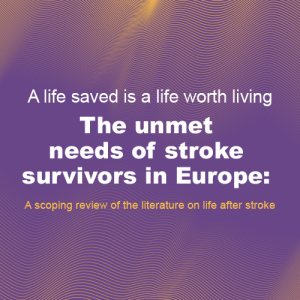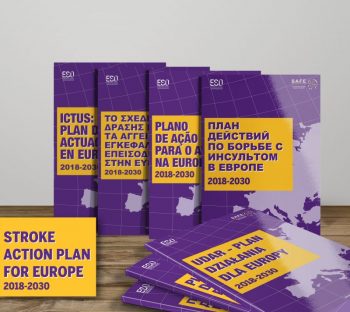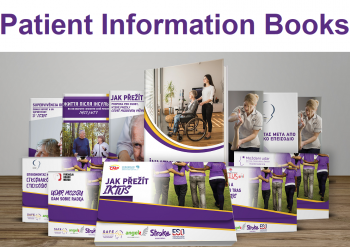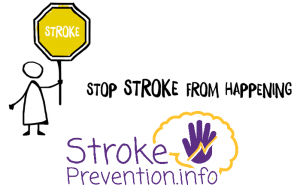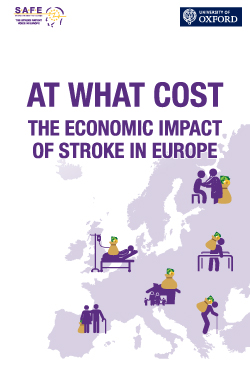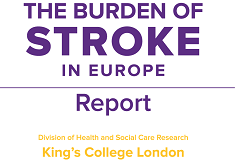The European Brain Council has been working with a Member of Parliament (MEP), SAFE, the European Stroke Organisation (ESO), the Atrial Fibrillation Association (AFA) and the Arrhythmia Alliance to organise a workshop in the European Parliament in Brussels on 25th January 2017.
The workshop will focus on Atrial Fibrillation-related stroke and the goal is to make policy makers more aware of this condition and how screening can help prevent AF-related strokes. On the 25th, the audience members will hear presentations on different perspectives of AF-related stroke: the carer story from Jon Barrick (representing SAFE), the importance to ‘Know Your Pulse’ by Trudie Lobban from AF Association & Arrhythmia Alliance, and insight from various physicians and Stroke experts, Neurologists Dr. Didier Leys (European Academy of Neurology), Dr. Geert Vanhooren (ESO) and Cardiologist/Rhythmologist Dr. Bernard Deruyter (European Parliament). There will also be a presentation from a Finnish stroke survivor, explaining how stroke has impacted daily life for him and his family. The session will be moderated by Peter O’Donnell of Politico.
During the week of the 25th, alongside the workshop, representatives from all organisations will be present in the Parliament building to offer pulse screening and to share information about AF and stroke prevention. As thousands of people pass through the Parliament every day, this is an excellent opportunity to increase public awareness of AF-related stroke.
How can you get involved?
We would appreciate if SAFE members would contact their own Members of the European Parliament (MEP) to inform them of the workshop and to ask them to attend. You can mention to your MEPs that your Stroke Support Organisation is very concerned by the number of AF-induced strokes and you can emphasise the importance of prevention.
We hope SAFE members will use this as an opportunity to remind their MEPs, who have an influence on European health policy, that stroke is an extremely important health priority.
What can the EU do?
You might know that the EU does not decide how individual member states run their health systems. National governments set priorities for health, and decide how their health resources are used. So what can we achieve by convincing policy makers in the EU that strokes (including AF-related strokes) should be prevented? The EU is involved in promoting public health by supporting cooperation between member states. Funding has been made available by the EU which will help member states improve their health systems. Just as the EU has allocated resources for addressing cancer and HIV, which has an impact on people throughout all EU countries, we want to ensure that the seriousness of stroke is recognised and addressed throughout the EU, and that resources are made available for that work.
What is the European Brain Council?
The European Brain Council works with patient associations, major brain-related societies as well as industries. Their mission is to promote brain research in order to improve the quality of life of those living with brain disorders in Europe. EBC want to bring attention to all the work being done to promote brain health and prevent and treat brain disorders in Europe. Different organisations, researchers, patients and carers are working on different conditions – Stroke, Multiple Sclerosis, Traumatic Brain Injury, Epilepsy, Mental Illness, to name only a few. The EBC wants to remind EU policy makers of the common vision in all of this work – brain health, and ensure that more resources are channeled towards research on the brain and for patients of brain disorders.
‘I love my brain’
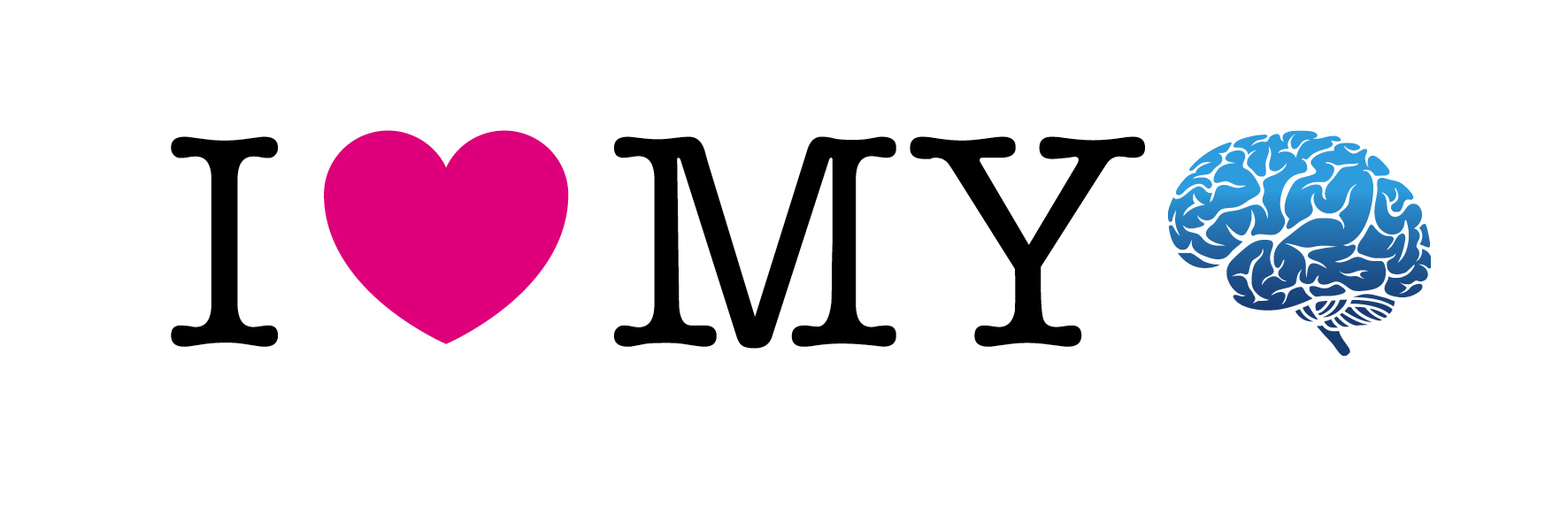 The European Brain Council works with patient associations, major brain-related societies as well as industries. Their mission is to promote brain research in order to improve the quality of life of those living with brain disorders in Europe.
The European Brain Council works with patient associations, major brain-related societies as well as industries. Their mission is to promote brain research in order to improve the quality of life of those living with brain disorders in Europe.
Different organisations, researchers, patients and carers are working on different conditions – Stroke, Multiple Sclerosis, Traumatic Brain Injury, Epilepsy, Mental Illness are only a few examples. EBC believe that by bringing together the very diverse activities which are all considered brain disorders, we can all benefit. Using a common logo, which is repeatedly seen in public and in the media, will help to gain more attention for brain disorders from EU policy makers, and ensure that more resources are channeled towards research on the brain and for patients of brain disorders.
The logo is not ‘owned’ by EBC. They welcome you to use the logo for any activity that is connected to brain health – conferences, outreach events, online campaigns – however you wish. EBC hope that over the next few years it becomes as recognizable as the other symbols which have been so effective in attracting resources to specific diseases – the pink ribbon for breast cancer, the red ribbon for HIV… Let’s get the public and policy makers thinking about how important our brain health is!

